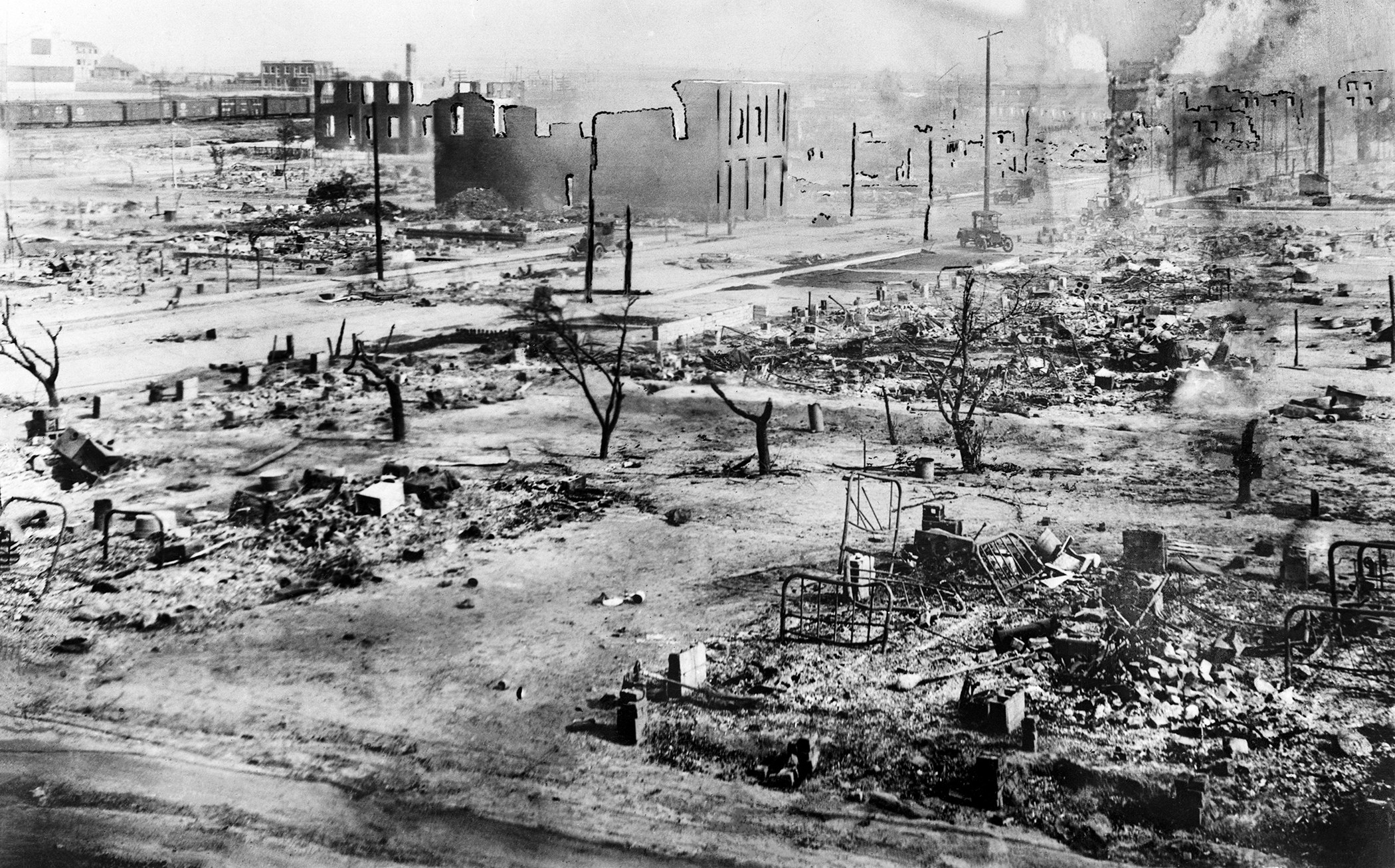In addition to the talk of Memorial Day that filled the American weekend news, numerous pundits and commentators took time to talk about and remember the one hundredth anniversary of what is known as the Tulsa Massacre. One of the most sordid and disgusting chapters of American history, the Massacre reduced a once bustling portion of Black Tulsa to smoldering ruins. Hundreds were killed, thousands lost their homes and livelihoods. Many more left the area
and never returned.
What happened? Enraged by an inflated and falsely reported incident of physical exchange between a young Black man and a white woman, a mob of whites entered what was then known as "Black Wall Street" in the Black section of Tulsa (the neighborhood "across the tracks") and set about to destroy it. For over twenty-four hours, the mob roamed through these streets, killing, pillaging, looting, and more. The racial hatred was frightening, the destruction was immense. The Black section of Tulsa would never be the same.
Much has already been said about this incident, and I do not wish to add another, perhaps supercilious, comment on it. On the other hand, from a theological standpoint, the behavior of the white mob, many of whose members, I suspect, attended church every Sunday, in those horrific hours underscores, once again, the enormous challenge which all people of faith face: how do we wish to construct our faith? Is faith to be a work of the mind? The heart? One's background and circumstances? Or something else?
Faith isn't about being certain. It's about entering into and submitting to a relationship with an infinite personal God.
And all the mystery that will inevitably come.
No comments:
Post a Comment